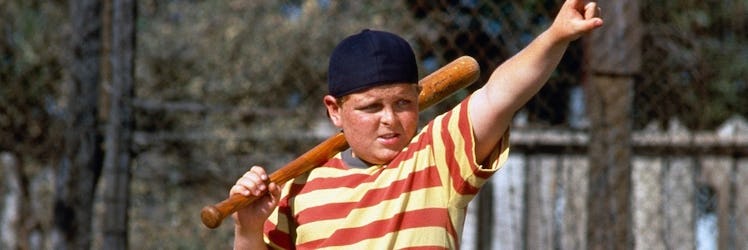A Top Sports Shrink On Giving Your Kid The Eye Of The Tiger
Step 1: Chill the f--k out.

After decades of watching coaches like Bob Knight, Bill Cowher, or the MLB’s ejection king, Bobby Cox, lose their goddamn minds during games, guys have come to believe that this is the kind of motivation athletes need. But when that athlete is your kid, and not some lefty reliever that arrived on a bus yesterday, it’s even more important to strike a balance of encouragement, support, teaching, and occasional dirt kicking.
Dr. Jonathan Fader is the author of Life As Sport and the sports psychologist for a lot of pros you probably watch on the regular. He’d like to talk about your antics during your kid’s little league game. “It’s a battle for any father to watch their progeny on the field,” says Dr. Fader. “Make no mistake: Evolution is at play, you’re watching your genetic potential be reached or not reached. You have so much love, but that passion is a huge risk because it can drive you to do things that are not helpful for your kid.”
So, what does a guy who gets pro athletes to be their best on the field, court, or rink, say to get your kid (who isn’t being paid millions) to succeed in sports? It’s all about chilling out, finding the right things to praise, and understanding their motivations.
GiphyChill The F–k Out
“Chill the f–k out,” says Dr. Fader, proving that psychologists can curse, too. While smiling and cheering are 2 of the best things for your kid, for some fathers the passion for their kid’s success makes them very un-chill. Dr. Fader says that before you start giving any advice to your son or daughter, you need to get a grip. Learn to control your breathing or improve how you talk to yourself to make it more positive. However your find that happy place, once you’re there, you can pass those skills along to your kid, and they’ll pass it along to their performance.
Don’t Praise the Shot, Praise the Focus
Even when they make an amazing shot, don’t praise the shot. Say, “Wow, your focus in that situation was big league level. It was amazing to me how when you were at the foul line, you blocked out everything else. and just focused on the basket.” Because a foul shot is just a foul shot, but focus and drive will be useful throughout their life. Especially if they’re playing H.O.R.S.E. against a billionaire.
Encourage Internal — Not External — Motivation
Psychologists have shown that people are motivated by internal factors more than external ones. “Your kid is most likely going to do better because they have a desire to be a part of a peer group or team rather than winning a trophy,” says Dr. Fader. When he asks NBA players why they want to play ball, if the answer is external motivators, like fame or money, he digs deeper. “I want to know if maybe it’s their passion to bring pride to the neighborhood where they grew up, or a sense that their father didn’t have the same opportunity.” The answer can be simple as simple as playing sports makes them feel good. If your kid says he likes to play baseball because he gets to go to Pizza Hut, you can work with that.
Don’t Just Say, “Get in the Zone”You’re partially responsible for “zone” creation. Start by creating a routine that helps your child feel comfortable, calm, and confident. “When you get to the park, ask them to think about the last game and what they did well,” says Dr. Fader. “When they’re lacing up their gear, have them take deep breaths and remember that it’s about having fun.” When you’re doing this you’re emphasizing the process, not the outcome. Shifting the focus from winning or doing well will help everyone enjoy game time more. (Mostly just talking about you, Angry Hockey Dad.)
Don’t Try Too Hard
“Too many fathers try to do too much,” says Dr. Fader. He says that especially when kids are little, between the ages 5 to 10, you should model things like giving high fives to teammates and respecting the coach. The important thing is for them to enjoy sports and have a good experience. As they get older, you can help them make adjustments and work on form and technique — you’re going to get frustrated trying to teach your 6-year-old to bend it like Beckham. “My daughter plays basketball and when I see her do things like not keeping her arms up, it freaks me out,” he says. “But, at the end of my life, I want her to remember my clapping and cheering, not yelling like a maniac.”
This article was originally published on